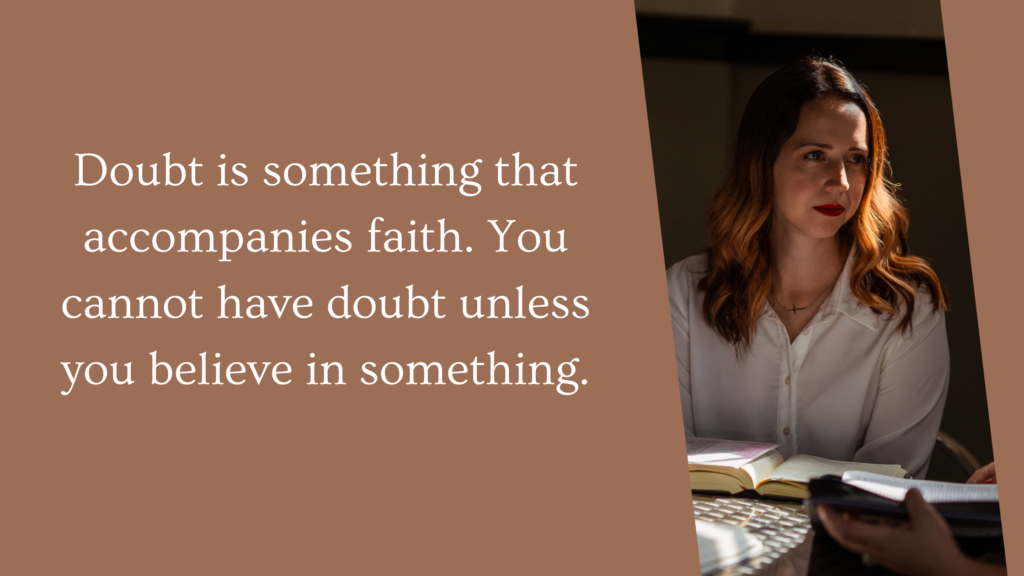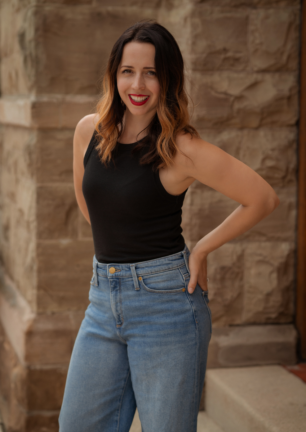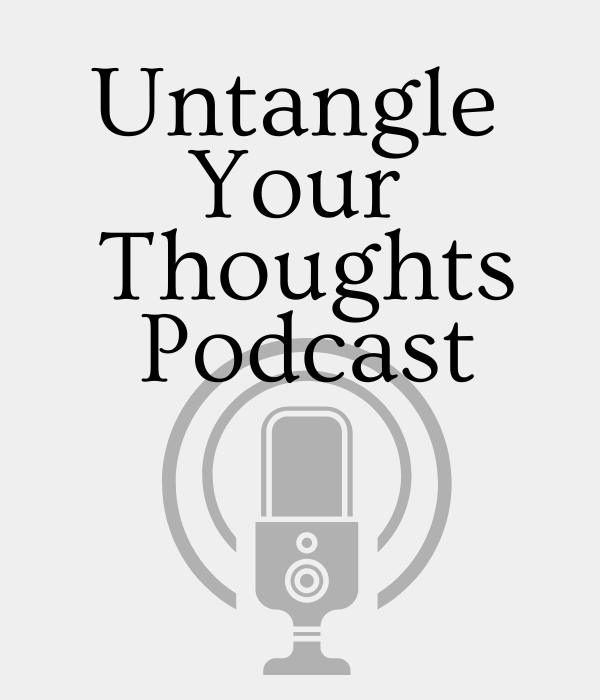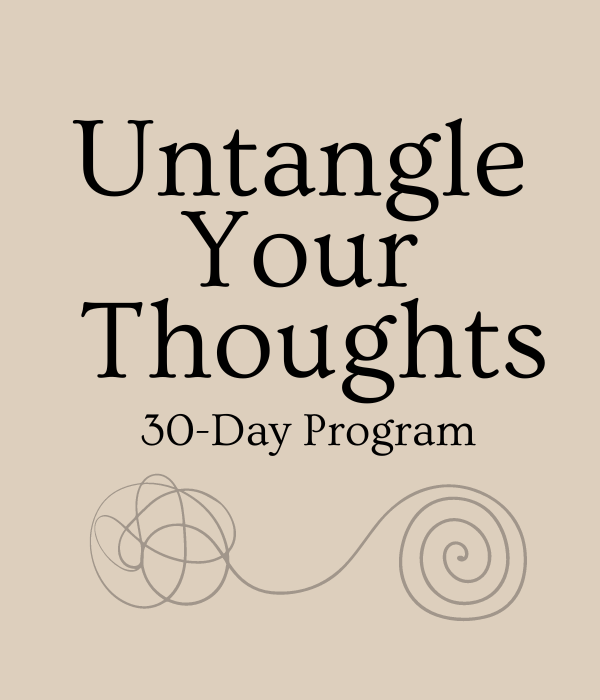Have you ever felt shame about questioning God or struggled to understand the difference between doubt and unbelief? Doubt and unbelief are two different things that affect how we see the world and our beliefs. Doubt happens when we’re unsure or questioning things, especially in our faith. Unbelief is when we choose not to believe in something, even when there’s evidence. Both can have a big impact on our spiritual journey, shaping what we believe and how we trust. In this discussion, we’ll look into what doubt and unbelief mean, where they come from, and how we can deal with them in our lives. This blog will show you how to overcome doubt and unbelief.
P.S. Asking questions can strengthen your trust in God.
By the way, what if I told you your feelings aren’t inherently bad or sinful? You don’t need to fear or suppress them. They can be a guide. If you’re interested, I have a free 3-day study on living by faith while processing emotions. Check it out here!
What’s the Difference Between Doubt and Unbelief
Let’s discuss (and break down) doubt and unbelief, trying to keep it simple and relatable. Sometimes, we mix up these two or don’t really understand what they mean.
Doubt is something that comes along when you believe in something. It’s like a companion to faith. The Bible says you can’t please God without faith, so it’s kind of a big deal. When life gets tough, doubt tends to show up more, especially if you’ve never been through something like that before. But here’s the thing – if you’ve overcome anything in your life before with God’s help, why doubt that He won’t do it again in this new challenge? The key is to be real with God about your doubts, talk to Him, and trust that He’s will take care of you.
Now, unbelief is different. It’s not just doubting; it’s refusing to see the evidence of God. You don’t need someone telling you every detail; the world around us is evidence enough. Unbelief is like closing your eyes to that evidence and saying, “Nope, I won’t believe.” It’s a conscious decision to ignore what’s right in front of you.
So, overcoming doubt and unbelief means understanding these differences. Doubt is natural in the journey of faith, but you can work through it by talking to God. Unbelief, on the other hand, is a choice to turn away from the evidence of God’s presence. Clearing up these distinctions can help you strengthen your beliefs and deepen your spiritual connection.

Understanding Doubt and Unbelief
In a nutshell, having faith doesn’t mean you won’t have doubt. It’s not doubting God himself, but more like uncertainty because we haven’t seen Him work in a specific way before. Unbelief, on the other hand, is knowing the facts but choosing not to believe.
Remember the story in Mark 9? A man went to Jesus, asking for his child to be healed, saying, “Lord, I believe. Help my unbelief.” It wasn’t that he didn’t believe Jesus could do it; he was just unsure if He would. As Christians, we grapple with doubt, and that’s okay. We’re human, and it’s part of our nature to wrestle with uncertainty, influenced by both our human nature and the culture around us.
Unbelief, however, is a deliberate choice not to believe. It’s like rejecting what we know and choosing to believe something else. Overcoming doubt and unbelief involves asking the right questions and understanding the balance.
Many people feel shame for their doubts, which opens the door for negative influences. It’s crucial to realize that faith and doubt can coexist. But when does doubt go too far? With the current trend of deconstructing faith, it’s essential to stay grounded. Going too far involves seeking answers outside of what God provides and neglecting wise counsel. Doubt should not lead us to abandon the core truths of God’s nature and character.
Overcoming doubt and unbelief means knowing the God we serve and seeking answers in a wise and discerning way, staying within the bounds of what aligns with His nature and character. It’s okay not to have all the answers, but seeking them in the right places is key.
Deconstructing Your Faith
Many Christians have been told not to question God. I’ve worked with many women, and that idea has kept them stuck, keeping God at a distance.
I think the best example of suffering is Job. He was a good man, but he went through a lot. He lost his children, got sick, and faced hardships. Job questioned God throughout but never cursed Him. In the end, Job said, “Now I have seen You, and I know.” When we ask God questions, it’s not about questioning who He is but about wanting to understand. Our goal should be to know God better through our trials.
Overcoming doubt and unbelief depends on God’s strength, not ours. The problem of evil and suffering often brings doubt, but we need to remember that God sees the big picture. It’s essential to be honest with Him and build an intimate relationship.
It’s beautiful how much God wants to be a part of our lives. Understanding what happened at salvation is crucial. When you say yes and believe, you don’t have a sin nature anymore. Overcoming doubt and unbelief requires knowing who we are in Christ. We have a new nature, but we still struggle with old habits. God doesn’t see us through our sin but through Jesus.
Doubt comes when we question our faith. Increasing faith means getting to know God through His Word. Faith is trust, and the more we know God, the more we trust Him. Unbelief, on the other hand, is something we had before getting saved. Understanding theology is essential for overcoming doubt and unbelief.
Recognizing doubt and unbelief in everyday life involves knowing what we believe and why. Apologetics helps us defend our faith, especially in a culture that challenges it. If we don’t know our own theology, we might lose others.
Pain is often associated with God, leading to doubt. Be careful how you hear the Word, as it transforms our lives. Don’t just check Christianity off a box; understand it as a transforming relationship.
To overcome doubt and unbelief, don’t beat yourself up. Use doubt as an opportunity to learn about God and strengthen your faith. Don’t be afraid to ask questions, but go beyond asking — seek answers from wise people and the Word of God. Asking, seeking, and knocking lead to a stronger faith.
In conclusion, don’t feel bad about doubt, and keep asking questions to strengthen your faith. God is with His church, and nothing can prevail against it. Overcoming doubt and unbelief will require building a relationship with God.






Oh my word! I went into prayer earlier today crying out to God over my doubts(ocd tendancies). Behold I see this podcast on IG! Thank You Father! When did these doubts greatly arrive? When I came back to Christ. What have these doubts done? Cause me to dive deeper into my faith and in Him. It causes me to seek Him more and meditate on His promises. I’ve seen and heard from Him most thru this struggle, so grateful. Thank you greatly for this post, it has greatly encouraged me. I pray it does for so many others. Thank you, and God bless you both.
Dusty, thank you so much for sharing. God is so good in how He speaks to us. Thank you for reading!
I feel like I’m always trying get back to that person I was when I first got saved
It bothers me I don’t think I hear God’s voice or know what I am supposed to do inministry..im 66 years old
Take an inventory on where you are now and how far you have come. Sometimes we need reminded of His faithfulness in our lives.
I enjoyed reading about doubt and how to deal with it. Thank you for. the detail information about this subject matter.
Thank you for reading. I am glad it helped!